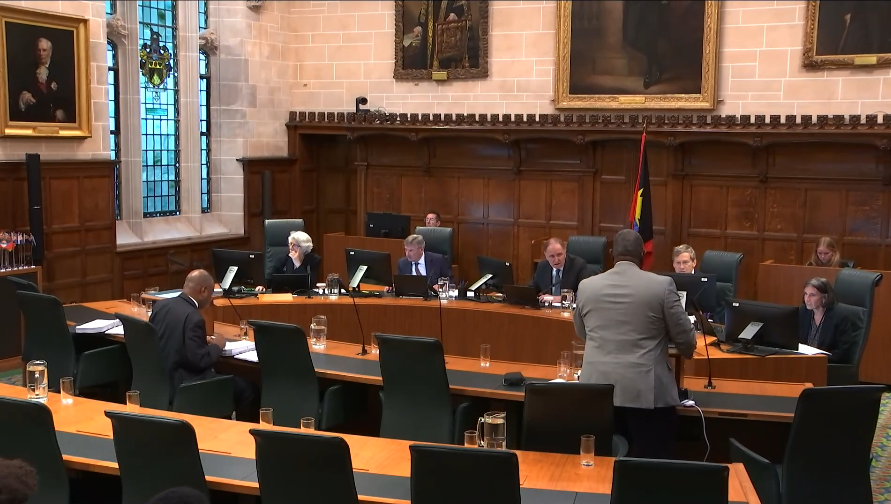The Privy Council heard legal arguments on Tuesday, challenging the Eastern Caribbean Court of Appeal’s decision to set aside exemplary damages awarded to Anderson Carty, the former Operations Manager at the Antigua and Barbuda Transport Board.
During Tuesday’s hearing in London, the five-member panel heavily scrutinized submissions made by the Transport Board’s attorney Hugh Marshall Jr, particularly focusing on whether the Court of Appeal had jurisdiction to eliminate the $25,000 exemplary damages originally awarded by the Industrial Court, after finding Carty’s 2014 dismissal was “harsh and oppressive”.
“The test is whether it [the dismissal] was harsh and oppressive and not in accordance with good industrial relations practice,” PrivyCouncilJustice George Leggattpointed out, adding that “the [Industrial Court] found that that test was satisfied.”
Marshall argued that even with the statutory provision, exemplary damages should still meet common law requirements established in the case of Rookes v Barnard, requiring “outrageous conduct” by the wrongdoer.
This argument appeared to frustrate the panel, with several jurists questioning the need to apply the case when there was law which laid out the test for how exemplary damages should be administered.
“The statute tells you what it means. You don’t make it mean something other than what the statute says just because in some other context, it has a different meaning,” Justice Leggattadded.
The justices also highlighted that the Industrial Court had found several aggravating factors in Carty’s dismissal, including that he learned about his termination from newspaper articles before receiving official notice, was prevented from collecting personal belongings, and faced unilateral changes to loan repayment arrangements.



Marshall acknowledged he had not raised Section 10(6) of the Industrial Court Act—which prevents appeals against exemplary damages awards—in the Court of Appeal proceedings.
This section states that “the opinion of the [Industrial] Court as to whether an employee has been dismissed in circumstances that are harsh and oppressive or not in accordance with the principles of good industrial relations practice and any order for compensation or damages including the assessment thereof… shall not be challenged, appealed against, reviewed, quashed or called in question in any court on any account whatever.”
The subsection, which Marshall admitted was not brought to the attention of the Transport Board, was noted by Justice Leggattwho said: “It seems you’ve caused your clients a great deal of unnecessary expense by failing to perform your duty.”
Dr David Dorsett, representing Carty, did not present any oral arguments as the panel focused entirely on challenging Marshall’s submissions.
“We argued in written submissions to the Privy Council, on the authority of section 10(6) of the Industrial Court Act and prior Privy Council authority going back to 1992, that the Court of Appeal had no jurisdiction to set aside the award of exemplary damages,” Dr Dorsett later told Observer. “The Privy Council determined that we need not elaborate on our written submissions and asked counsel for the Transport Board to convince them as to why our position should not be accepted.”
The case stemmed from Carty’s dismissal in October 2014 while he was on approved vacation leave. The Industrial Court originally awarded him $89,695.39 in compensation, including exemplary damages and costs, after finding his dismissal was unfair, harsh, and oppressive.
The Court of Appeal later modified this award, removing exemplary damages, thrift fund entitlements, and costs, but adding compensation for loss of protection and manner of dismissal.
The Privy Council’s ruling, expected within the next few months, could potentially restore Carty’s original compensation package if they find the Court of Appeal exceeded its jurisdiction.




